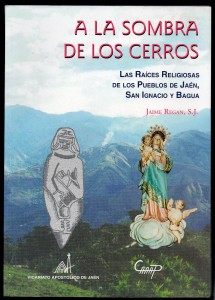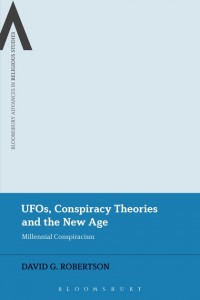Identity and Capitalism
This interview with Craig Martin explores the limits of identity formation under modern Capitalism. Martin's work Capitalizing Religion: Ideology and the Opiate of the Bourgeoisie focuses on the ways in which culture and religion are produced for consumption.
Have we ignored the ways in which identity is produced and reproduced under capitalism's pressure? The casual use of the term "spirituality" today has become one way literary works have created a space where the social conditions of religious identity appear as identity forming. Cultivating spiritual cache may seem benign, but Martin argues here for a critical gaze about the ways in which even our most basic claims about religious identity are constructed in ways that obscure rather that clarify the cultural pressures and structures that surround us.
Social Constructionism, and Marxist Approaches to the Study of Religion, as well as Craig Martin's previous podcast appearances. You can download this interview, and subscribe to receive our weekly podcast, on iTunes. If you enjoyed it, please take a moment to rate us. And remember, you can use our Amazon.co.uk, Amazon.com, or Amazon.ca links to support us at no additional cost when buying academic texts, Gilbert & Sullivan librettos, ruby slippers, and more.
Nature alive: Amazonian religion in Peru
 The Amazon rainforest has always been a land filled with mystery since its 'discovery'. Ranging from the first expedition of the conquistador Francisco de Orellana, to the establishment of Jesuit missions across the Marañon river, and the naturalistic explorations of Humboldt and la Condamine, it still feels as if it has more to be known.
The Amazon rainforest has always been a land filled with mystery since its 'discovery'. Ranging from the first expedition of the conquistador Francisco de Orellana, to the establishment of Jesuit missions across the Marañon river, and the naturalistic explorations of Humboldt and la Condamine, it still feels as if it has more to be known.
This was also the case for the earliest 'ethnographic' records of Gaspar de Carvajal and Francisco de Figueroa . As was often the case with Spanish chroniclers, they 'misunderstood' the 'indigenous' way of thinking, in some cases even labeling them as atheists (Regan: 2015). In time, this would change, in part because of the continuing social interaction (between missionaries, laymen, other indigenous groups, and so on) but also in more recent times, because of the ethnographic research undertaken by many different anthropologists. This has enabled a more comprehensive knowledge about the beliefs and way of life of the Amazonian indigenous people. In this podcast, Dr Jaime Regan Mainville, a leading researcher in the anthropology of religion and linguistics, discusses his ethnographic research among some of the indigenous peoples of the Amazon basin; namely the kukama, the awajún, and the wampís, among others.
Regan argues that one particular characteristic of Amazonian belief is highlighted above the rest: close links with the environment. Amazonian identity and belief systems are articulated into what Philippe Descola and other anthropologists have regarded as animism (Regan: 2015). Of course, these beliefs haven't remained 'untouched' or 'pure', but have been particularly influenced by encounters with Jesuits and Franciscans during the sixteenth century. The interview continues to focus upon some of the impacts of this these encounters upon existing belief systems, practices and cosmologies (cf. Regan: 2001).
 In the final part of the interview Regan states that the indigenous way of life has drastically changed, because of the Peruvian state's oil exploration policy s, combined with illegal mining and logging. For example, in the case of oil exploration, in June 2009 the “Baguazo” or Bagua conflict took place in part due to failed attempts at consultation and negotiation between with indigenous leaders of the Amazon region (mostly awajún and wampís) and the Peruvian state: Regan traces this to a conflict of worldviews (Regan: 2010).
In the final part of the interview Regan states that the indigenous way of life has drastically changed, because of the Peruvian state's oil exploration policy s, combined with illegal mining and logging. For example, in the case of oil exploration, in June 2009 the “Baguazo” or Bagua conflict took place in part due to failed attempts at consultation and negotiation between with indigenous leaders of the Amazon region (mostly awajún and wampís) and the Peruvian state: Regan traces this to a conflict of worldviews (Regan: 2010).
Listeners might also be interested in our previous podcasts on Andean Religion in Peru, Vernacular Religion, and the category of "indigenous religion". You can download this interview, and subscribe to receive our weekly podcast, on iTunes. If you enjoyed it, please take a moment to rate us . And remember, you can use our Amazon.co.uk, Amazon.com, or Amazon.ca links to support us at no additional cost when buying academic texts, stuffed animals, gobstoppers, and more..
References
- García, A. (2007). “The dog in the manger síndrome”. Peruvian Times. Lima. Accesed on: 28 november 2015. http://www.peruviantimes.com/30/president-alan-garcias-policy-doctrinethe-dog-in-the-manger-syndrome/2860/
- Regan, J. (1983). Hacia la tierra sin mal. Estudio sobre la religiosidad del pueblo en la Amazonía. Lima: Centro de Estudios Teológicos de la Amazonía (CETA).
- Regan, J. (2001). A la sombra de los cerros. Las raíces religiosas de los pueblos Jaén, San Ignacio y Bagua. Lima: Centro Amazónico de Antropología y Aplicación Práctica (CAAAP).
- Regan, J. (2010). “Los awajún y wampís contra el Estado: una reflexión sobre antropología política”. Accesed on: 16 october 2015.http://sisbib.unmsm.edu.pe/bibvirtualdata/publicaciones/inv_sociales/N24_2010/pdf/a02.pdf
- Regan, J. (2015). “De ‘ateístas’ a cristianos: las reducciones jesuitas de Mainas de los siglo XVII y XVIII”. Creer o no creer La fe en tiempos de transición. Lima: Universidad Antonio Ruiz de Montoya, pp. 103-123.
- Regan, J. (2015). “El aporte de los espíritus a tres pueblos amazónicos”. Estructura Salvaje. Lima, año 4, número 4, pp. 197-210.
From the Ku Klux Klan to Zombies
Many of us only know about the white supremacist group the Ku Klux Klan through film and television, and much of what we see blurs fact and fiction. Distinguishing each side of that messy divide is the prolific Kelly J. Baker, exploring how media portrayals of the hate group have influenced audiences and, in turn, fed back on its own members. This previously unaired interview conducted by A. David Lewis from 2013 sketches out the rise of the KKK on the large and small screen, its relevance to discussions of religious terrorism today, and perhaps even a link to Baker's other work on zombies in popular culture.
Gospel According to the Klan
The KKK's Appeal to Protestant America, 1915-1930
Kelly J. Baker
This interview was recorded by A. David Lewis – who has been an interviewee on the RSP twice in the past – for a separate project. As fate would have it, the interview has made its way into our hands and we are delighted to bring it to you now.
Listeners might also be interested in our previous podcasts on Video Games and Religious Studies, Religion and Film, Religion and Literature,Visual Culture and the Study of Religion, Religion and Comic Books, and Religion and Cultural Production. You can download this interview, and subscribe to receive our weekly podcast, on iTunes. If you enjoyed it, please take a moment to rate us . And remember, you can use our Amazon.co.uk, Amazon.com, or Amazon.ca links to support us at no additional cost when buying academic texts, ornaments, puncture repair kits, and more.
Music, Marketing and Megachurches
During the 20th century, the media has exploded to include radio, television and most recently and perhaps influentially, the Internet. Music has been a big part of this new emerging "mediapolois", moving from a mostly stand-alone medium, to part of a marketing matrix of people, places and industries. Today, music's meaning is more often part of a branded ecosystem, not limited to entertainment, but part of the experience of everyday life, including religion. Evangelical churches and, increasingly, New Religious Movements use music as part of a branding exercise that helps to transform them from local congregations into a transnational enterprise.
To discuss music, marketing and contemporary religion, David Robertson sat down with Dr. Tom Wagner, an ethnomusicologist, percussionist and lecturer at the Reid School of Music in Edinburgh. They discuss the long history of the use of music in promoting evangelical congregations, and the transformation that came with the development of recording and broadcast technologies. Tom describes his research and fieldwork with Hillsong, an evangelical church movement with an international reach who use music both in their worship and their branding. Later, they discuss the use of music in Scientology, to create and maintain a particular aesthetic, and how Tom sees this research developing in the future.
You can download this interview, and subscribe to receive our weekly podcast, on iTunes. If you enjoyed it, please take a moment to rate us . And remember, you can use our Amazon.co.uk, Amazon.com, or Amazon.ca links to support us at no additional cost when buying academic texts, scuba gear, garden gnomes, and more.
DEATH, Religion, and Terror Management Theory
 One year before his own death in 1790, Benjamin Franklin, in a letter to the French scientist Jean-Baptiste, codified a witty remark into popular history about two things anyone living can always count on: “In this world nothing can be said to be certain except death and taxes.” You might be able to dodge the taxman, but not death—we are all going to die. Roughly 100,000 years prior to Franklin’s quote the first evidence of intentional human burial appears in the archaeological record (Mithen, 2009). Humans have been thinking about death for a very long time and the threat of nonexistence can be a terrifying reality to face. According to terror management theory (TMT), cultural worldviews, which can manifest religious, political, or a bricolage of other meanings, serve to assuage this fear of our ever impending demise (Jong & Halberstadt, forthcoming). Interestingly, this TMT triage care for the existential self occurs outside of conscious awareness. However, in this podcast interview with Thomas Coleman for the Religious Studies Project, death researcher and psychologist Dr. Jonathan Jong, draws on experimental research as he teases the fear of death and the religious worldviews that may help confront this fear, into your conscious awareness.
One year before his own death in 1790, Benjamin Franklin, in a letter to the French scientist Jean-Baptiste, codified a witty remark into popular history about two things anyone living can always count on: “In this world nothing can be said to be certain except death and taxes.” You might be able to dodge the taxman, but not death—we are all going to die. Roughly 100,000 years prior to Franklin’s quote the first evidence of intentional human burial appears in the archaeological record (Mithen, 2009). Humans have been thinking about death for a very long time and the threat of nonexistence can be a terrifying reality to face. According to terror management theory (TMT), cultural worldviews, which can manifest religious, political, or a bricolage of other meanings, serve to assuage this fear of our ever impending demise (Jong & Halberstadt, forthcoming). Interestingly, this TMT triage care for the existential self occurs outside of conscious awareness. However, in this podcast interview with Thomas Coleman for the Religious Studies Project, death researcher and psychologist Dr. Jonathan Jong, draws on experimental research as he teases the fear of death and the religious worldviews that may help confront this fear, into your conscious awareness.
You can download this interview, and subscribe to receive our weekly podcast, on iTunes. If you enjoyed it, please take a moment to rate us. And remember, you can use our Amazon.co.uk, Amazon.com, or Amazon.ca links to support us at no additional cost when buying academic texts, dihydrogen monoxide, plastic Tyrannosaurus rex replicas, and more.
References
Jong, J., & Halberstadt, J. (forthcoming). Death, anxiety, and religious belief. London, UK: Bloomsbury Academic.
Mithen, S. (2009). Peopling the World. In B. Cunliffe, C. Gosden & R. Joyce, The Oxford Handbook of Archaeology (pp. 281-304). New York: Oxford University Press.
Descriptions of Religion as Explanations of Religion
In this week's podcast, Kathryn Lofton and John Modern join Adam Miller for a conversation that hovers around the relationship between description and explanation in the study of religion, and the notion that the way scholars of religion think about their categories of analysis shapes what they say about a given set of data and how they say it. Given the entanglement of description and explanation, Lofton and Modern stress the responsibility scholars of religion have to know their material deeply, to be aware of the history of their field and categories of analysis, and to speak to issues/questions beyond their areas of speciality.
Kathryn Lofton is the Chair of the Religious Studies Department at Yale University. She is the author of Oprah: The Gospel of an Icon, the soon-to-be-published Consuming Religion, and is currently working on the religious contexts of Bob Dylan. John Modern is the Chair of the Religious Studies Department at Franklin & Marshall College. He is the author of Secularism in Antebellum America and is currently pursuing two book projects—one on machines and cognitive science, and another on Devo and rubber. In addition to their solo-enterprises, they have worked together on a couple of things—Frequencies, a collaborative genealogy of spirituality, for example, and most recently a book series to be published by the University of Chicago Press titled Class 200.
You can download this interview, and subscribe to receive our weekly podcast, on iTunes. If you enjoyed it, please take a moment to rate us. And remember, you can use our Amazon.co.uk, Amazon.com, or Amazon.ca links to support us at no additional cost when buying academic texts, camping gear, masquerade masks, and more.
Conversion and Deconversion as Concepts in the Sociology of Religion
Religious conversion has traditionally been understood as the abandonment of one religious identity for another, or a switch from no religious identification to a newly religious one. Psychologists, sociologists, anthropologists, and others have viewed conversion as a sudden, singular event in one’s life. In the 1960s and 1970s, in the wake of new religious movements and the flowering of Asian religious traditions in the West, sociologists reformulated conversion as an active, gradual process of transformation.
Conversion, in these understandings, is not a changed subjective or ontological identity but rather a shift in one’s discursive universe, social relationships, and embodied practices, a new role learned through language, behavior, and interpersonal boundary maintenance. Similarly, deconversion and its scholarly synonyms (apostasy, alienation, disaffiliation, defection, exit, leaving) has many contexts, motivations, and processes, including loss of a specific religious experience, doubt or denial of beliefs, moral criticism, emotional suffering, and unlearning particular vocabularies and behaviors.
For this interview with Lynn Davidman, we focus on the concepts of conversion and deconversion*, illustrations of these processes in various contexts, what each term means and how each is experienced in someone's life, the histories of these terms and their use in scholarship, and issues that arise from their conceptualization or use.
You can download this interview, and subscribe to receive our weekly podcast, on iTunes. If you enjoyed it, please take a moment to rate us. And remember, you can use our Amazon.co.uk, Amazon.com, or Amazon.ca links to support us at no additional cost when buying academic texts, jelly beans, the artist formally known as "Prince" memorial T-shirts, and more.
*Our interview took place during the Association for the Sociology of Religion annual meeting, held in Chicago. During our conversation, Davidman refers to comments made at an author-meets-critics panel about her new book which took place earlier that day.
*For more on conversion, see L. Rambo, Understanding Religious Conversion (1993) and L. Rambo and C. Farhadian, The Oxford Handbook of Religious Conversion (2014), as well as D. Snow and R. Machalek, “The Sociology of Conversion” (1984).
*For more on deconversion, see H. Streib et al, Deconversion (2009) and P. Zuckerman, Faith No More (2011).
Popular Culture, Dr. Who, and Religion
It's a big universe, and sometimes things get lost in time and space. For instance, this 2013 interview with Dr. James F. McGrath was recorded but then fell into a metaphorical black hole (i.e. the potential podcast series never debuted). Fortunately, his discussion of topics including the soul, the religious ethics of artificial intelligence, and the function of science fiction on informing audiences' spiritual sensibilities all remain (relatively) timeless. To start, he addresses the unique challenges of working across disciplines in pursuit of analyzing popular culture currently, then shifts to an exploration of religion's study in the future. Along the way, McGrath and interviewer A. David Lewis namecheck famous characters such as Captain Kirk and Doctor Who in the effort to illustrate complex notions of the soul embedded in secular entertainments. Enjoy a trip to the past—that looks to the future!
UFOs, Conspiracy Theories… and Religion?
Area 51, Ancient Aliens, endemic child abuse at the BBC, Reptilians, Watergate, 9/11, renegade preachers rising from the dead, the grassy knoll, The Da Vinci Code, Hydra, climate change, the moon landings, Satanic Ritual Abuse, The X Files... the popular imagination is rife with stories of secret plans and cover-ups, agencies working behind the scenes, grand plans carried without the knowledge of the unsuspecting masses, lies, deceit, and an elect few who know 'the truth'. Sometimes, stories which at one time seemed far-fetched receive widespread acceptance and become the hegemonically accepted norm. At others, they remain the preserve of relatively small groups of "nutters", and become designated as "conspiracy theories" by those who have the power to do so. What might this popular discursive trope be able to tell us about contemporary Western society? How might scholars go about studying it, particularly when they themselves are frequently implicated as working against the truth by "insiders"? And what might all of this have to do with the contemporary academic study of religion?
 To discuss this tantalizing subject, we are joined today by a scholar who will be no stranger to regular listeners of the Religious Studies Project, Dr David Robertson. The interview begins with David's own journey to this research field, before considering some basic questions such as "what is a conspiracy theory?" David then lays out the historical context of the parallel development of contemporary millennial and conspiracist discourse, and his case studies - Whitley Streiber, David Icke, David Wilcock, and their audiences. Discussion then turns to the meat of Robertson's theoretical conclusions concerning epistemic capital, popular epistemic strategies, the UFO as a discursive object connecting two fields of discourse, power, and prophecy. The interview concludes with discussion of the relevance of this field of study to Religious Studies more broadly, and some challenging admonitions to for the discipline.
To discuss this tantalizing subject, we are joined today by a scholar who will be no stranger to regular listeners of the Religious Studies Project, Dr David Robertson. The interview begins with David's own journey to this research field, before considering some basic questions such as "what is a conspiracy theory?" David then lays out the historical context of the parallel development of contemporary millennial and conspiracist discourse, and his case studies - Whitley Streiber, David Icke, David Wilcock, and their audiences. Discussion then turns to the meat of Robertson's theoretical conclusions concerning epistemic capital, popular epistemic strategies, the UFO as a discursive object connecting two fields of discourse, power, and prophecy. The interview concludes with discussion of the relevance of this field of study to Religious Studies more broadly, and some challenging admonitions to for the discipline.
Support the RSP by using our affiliate link to buy David Robertson's new book!
Permutations of Secularism
Joe Blankholm and Dusty Hoesly, we first focus on the origins of the term “secularism,” the proliferation of its meanings, and the uses to which it is put in Anglo-American contexts. Then we discuss the uses of the terms secularism and the secular today, particularly using a specific case study from Joe’s research on American nonbeliever organizations.
